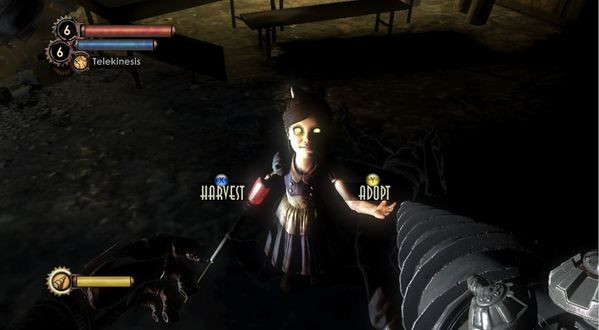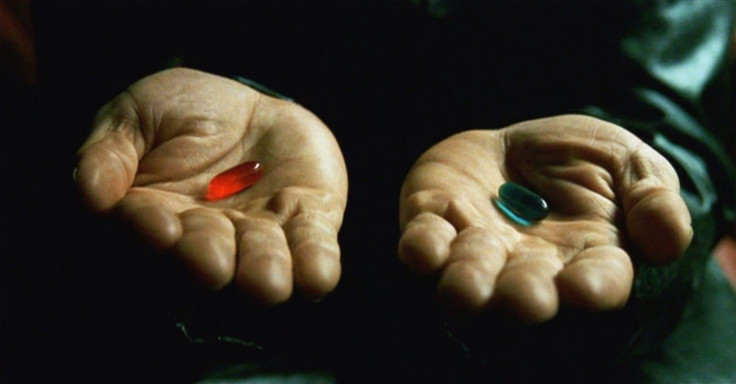The Tribeca Film Festival addressed the convergence of gaming and filmmaking with an esteemed panel called “From Film to Game.” Moderated by WIRED editor at large Jason Tanz, the conversation centered on innovations in digital content and featured BioShock developer Ken Levine, Her Story director Sam Barlow, and Hollywood filmmaker Will Gluck. For an hour, the group discussed modern narratives presented in video games and television, and what those mean for the future of interactive storytelling.
“What is the player and what is the character?” posed Levine when asked about the opportunities and limits of interactive gaming. “There’s this really weird relationship with the player existing where he’s half himself and half this other entity. There’s nothing like that in film, there’s nothing like that in any other medium… where you’re inhabiting to some degree this other form within this sort of bizarre set of constraints that you’re exploring.
“I think the tactile exploration of being somebody else but not really being somebody else creates this tension that doesn’t exist anywhere else,” Levine added.

Levine does not deny the influence of film and television on video games, however. Much like screenplays and television scripts, the game director develops his narratives with an arching act structure.
“You start understanding there’s a skeleton to narratives -- why did we appreciate that moment and why do we react to this stuff?” pondered Levine. “I don’t know, it probably goes back to our caveman days that make us react to that form.”
Will Gluck, who directed Mila Kunis and Justin Timberlake in Friends with Benefits, as well as Emma Stone in Easy A, weighed into the conversation with his filmmaking perspective. As of late, Gluck is trying to utilize techniques from the video game world to create a “choose your own adventure” television series. If that sounds like the stuff of science-fiction, you’re not too far off. Technological limitations initially put a damper on Gluck’s idea.
“We went to pitch it to Netflix and Amazon and HBO and all these big places and we said, ‘Okay, you’re gonna get to a point in the story where you have to make a choice,’” Gluck explained. “And we weren’t going to make the choice for the viewer -- we’re making the choice for the character. To a point, they all said, ‘But, how would the technology work to put up different video streams?’ And I said, ‘Aren’t you Netflix?’”
Luckily for Gluck, Interlude, a media company that specializes in interactive video technology, took interest in the project and is now working to bring Gluck’s pitch to reality. Despite Gluck’s admission that he’s “never been a gamer,” his presence at the Tribeca panel was particularly appropriate considering Interlude was featured in WIRED earlier that same day for collaborating with Levine on a interactive Twilight Zone movie. The connections don’t stop there -- Interlude hired the final panel member, Her Story’s Eric Barlow, as executive creative director just last month. He is tasked with directing a variety of interactive content, including an original digital short based on the 1983 film, WarGames.

Though the trio are all working on separate projects, Interlude is the connective tissue allowing these artists to transform the way we interact with content. If successful, it could lead to a future in which we are the characters in movies and TV shows. And with virtual reality beginning to gain ground in the mainstream market, we’re as close to living our fantasies inside video games than ever before.
Stay tuned to iDigitalTimes for continuing coverage of the 2016 Tribeca Film Festival.

![Best Gaming Mouse For Gamers With Smaller Hands [2025]](https://d.player.one/en/full/227430/best-gaming-mouse-gamers-smaller-hands-2025.png?w=380&h=275&f=fdcf47c1c5fc58d1e41d3be505c12568)















